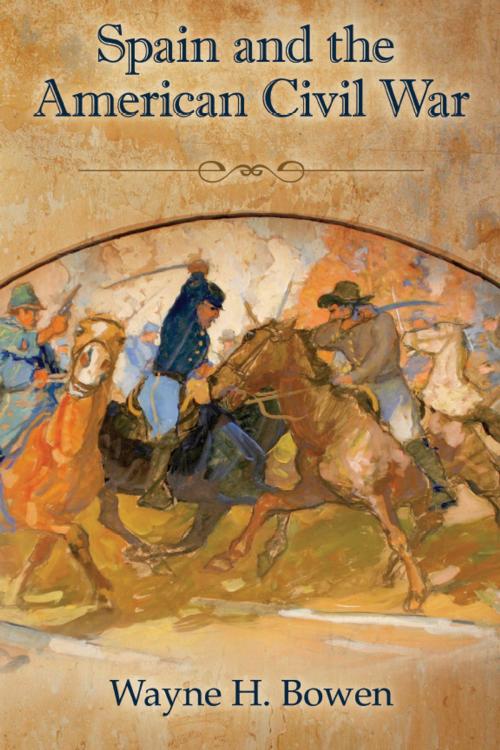Spain and the American Civil War
Nonfiction, History, Spain & Portugal, Americas, United States, Civil War Period (1850-1877)| Author: | Wayne H. Bowen | ISBN: | 9780826272584 |
| Publisher: | University of Missouri Press | Publication: | November 1, 2011 |
| Imprint: | University of Missouri | Language: | English |
| Author: | Wayne H. Bowen |
| ISBN: | 9780826272584 |
| Publisher: | University of Missouri Press |
| Publication: | November 1, 2011 |
| Imprint: | University of Missouri |
| Language: | English |
In the mid-1800s, Spain experienced economic growth, political stabilization, and military revival, and the country began to sense that it again could be a great global power. In addition to its desire for international glory, Spain also was the only European country that continued to use slaves on plantations in Spanish-controlled Cuba and Puerto Rico. Historically, Spain never had close ties to Washington, D.C., and Spain’s hard feelings increased as it lost Latin America to the United States in independence movements. Clearly, Spain shared many of the same feelings as the Confederate States of America during the American Civil War, and it found itself in a unique position to aid the Confederacy since its territories lay so close to the South. Diplomats on both sides, in fact, declared them “natural allies.” Yet, paradoxically, a close relationship between Spain and the Confederacy was never forged.
In Spain and the American Civil War, Wayne H. Bowen presents the first comprehensive look at relations between Spain and the two antagonists of the American Civil War. Using Spanish, United States and Confederate sources, Bowen provides multiple perspectives of critical events during the Civil War, including Confederate attempts to bring Spain and other European nations, particularly France and Great Britain, into the war; reactions to those attempts; and Spain’s revived imperial fortunes in Africa and the Caribbean as it tried to regain its status as a global power. Likewise, he documents Spain’s relationship with Great Britain and France; Spanish thoughts of intervention, either with the help of Great Britain and France or alone; and Spanish receptiveness to the Confederate cause, including the support of Prime Minister Leopoldo O’Donnell.
Bowen’s in-depth study reveals how the situations, personalities, and histories of both Spain and the Confederacy kept both parties from establishing a closer relationship, which might have provided critical international diplomatic support for the Confederate States of America and a means through which Spain could exact revenge on the United States of America.
In the mid-1800s, Spain experienced economic growth, political stabilization, and military revival, and the country began to sense that it again could be a great global power. In addition to its desire for international glory, Spain also was the only European country that continued to use slaves on plantations in Spanish-controlled Cuba and Puerto Rico. Historically, Spain never had close ties to Washington, D.C., and Spain’s hard feelings increased as it lost Latin America to the United States in independence movements. Clearly, Spain shared many of the same feelings as the Confederate States of America during the American Civil War, and it found itself in a unique position to aid the Confederacy since its territories lay so close to the South. Diplomats on both sides, in fact, declared them “natural allies.” Yet, paradoxically, a close relationship between Spain and the Confederacy was never forged.
In Spain and the American Civil War, Wayne H. Bowen presents the first comprehensive look at relations between Spain and the two antagonists of the American Civil War. Using Spanish, United States and Confederate sources, Bowen provides multiple perspectives of critical events during the Civil War, including Confederate attempts to bring Spain and other European nations, particularly France and Great Britain, into the war; reactions to those attempts; and Spain’s revived imperial fortunes in Africa and the Caribbean as it tried to regain its status as a global power. Likewise, he documents Spain’s relationship with Great Britain and France; Spanish thoughts of intervention, either with the help of Great Britain and France or alone; and Spanish receptiveness to the Confederate cause, including the support of Prime Minister Leopoldo O’Donnell.
Bowen’s in-depth study reveals how the situations, personalities, and histories of both Spain and the Confederacy kept both parties from establishing a closer relationship, which might have provided critical international diplomatic support for the Confederate States of America and a means through which Spain could exact revenge on the United States of America.















